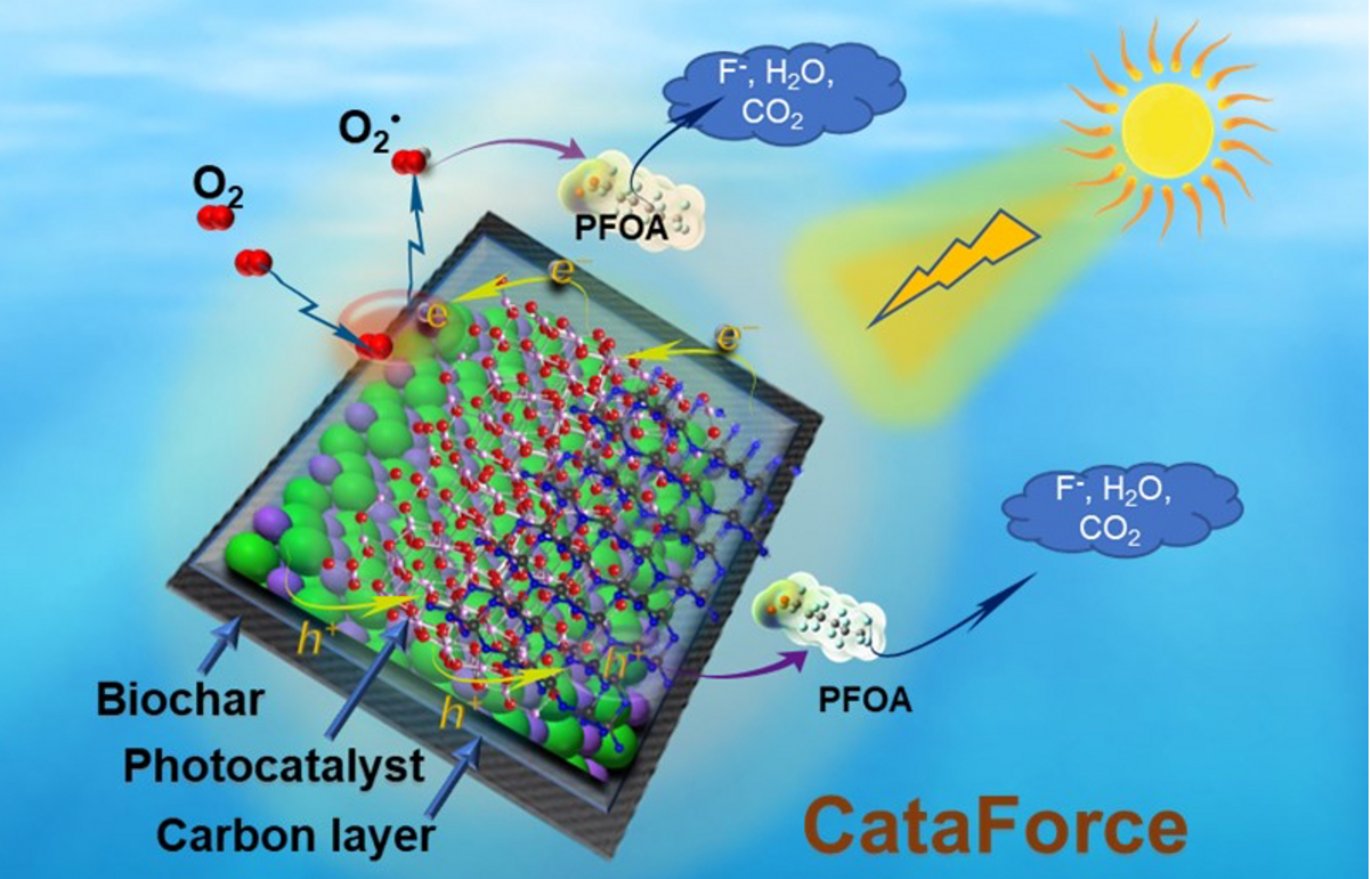AU researchers develop solar-powered tech to make “forever chemicals” harmless
A new research project aims to develop a photocatalytic process that can transform the hard-to-degrade and harmful environmental toxins PFAS into harmless substances. This, however, is only the first step for the research group behind the new tech in a journey towards a world without environmental toxins.

Researchers from Aarhus University hope to develop a fundamentally new technology aimed at removing harmful per- and polyfluoroalkyl substances, PFAS, which have been used by industry in a myriad of products since the 1940s, and which have subsequently accumulated in humans, animals and the environment around the globe.
The technology is based on the development of sustainable biochar-based photocatalytic nanomaterial that, with the help of solar energy, can expedite a chemical degradation of PFAS; a degradation that would not otherwise occur.
The end products are non-toxic fluorides, CO2 and water. The photocatalytic material used for degradation can be reused and the end product is nothing but clean water.
The project is called CataForce and it has received a DKK 6.2 million Sapere Aude grant from the Independent Research Fund Denmark.
"There’s an urgent need to develop technologies that can break down the perpetual chemicals in a green, sustainable way. PFAS are some of the worst environmental pollutants we have today and, unfortunately, no sustainable methods to break these substances down exist. We will change that with this project,” says Assistant Professor Zongsu Wei, an expert in PFAS and research leader of the research project at the Department of Biological and Chemical Engineering at Aarhus University.
PFAS are both hydro- and oleophobic, meaning they are water and fat repellent. They are also very stable molecules. This makes the substances extremely difficult to break down, hence the name ‘forever chemicals’.
The substances accumulate in humans, animals and nature, and are unfortunately extremely harmful to health and the environment. Among other things, they can be carcinogenic, cause harm to the immune systems, and increase the risk of miscarriage, hormone disruption and birth defects.
"A number of different techniques exist to remedy the problem with PFAS, but these methods require a lot of energy, or other types of chemicals, or they don’t remove PFAS completely, but rather transfer them to another phase, e.g., water to solid matter. What we propose with this project is extraordinary, and it’s high time that something extraordinary is done within this field," says Zongsu Wei.
But the researcher stresses that the project should not end with PFAS. With the development of a completely new platform technology, the end goal is basically a world without environmental toxins:
"There are thousands of harmful chemical substances circulating in the environment. Substances that, among other things, pollute the drinking water of millions of people all over the world and accumulate in the food chain. The technology we propose with this project, i.e., the development of a biochar-based, recyclable nanomaterial, can also be used to neutralise these other substances," he says and continues:
"We're heading towards a new generation of water treatment technologies that can really help clean up after all the man-made environmental toxins that have been released into the environment over far too many years."
Contact
Assistant Professor Zongsu Wei
Aarhus University, Department of Biological and Chemical Engineering
Mail: zwei@bce.au.dk
Tel.: +4593522047
